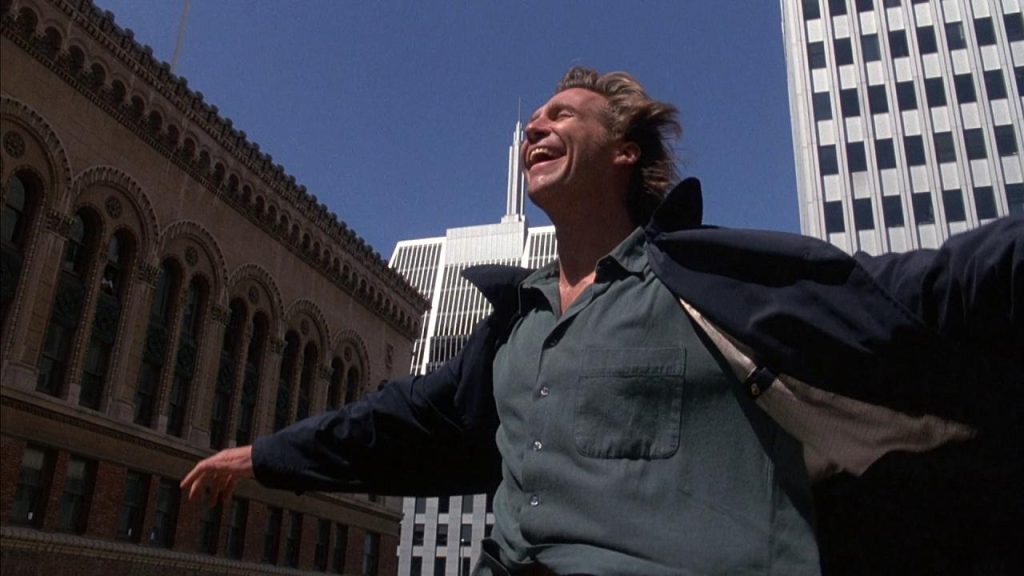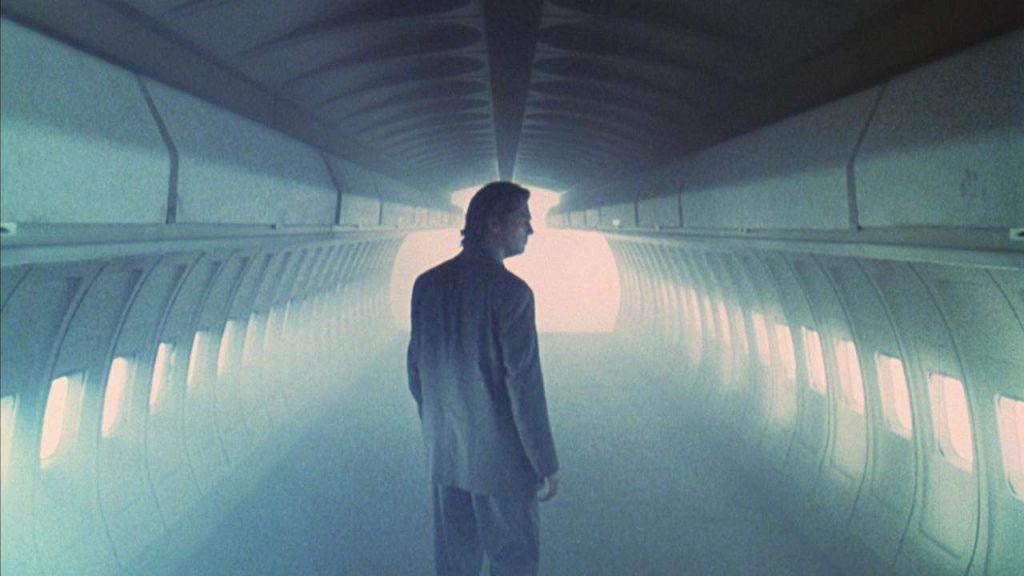When Peter Weir received his honorary Academy Award last year, it was a long time coming. The retired director helped to usher in the Australian New Wave with abrasive films about his homeland like Picnic at Hanging Rock and Gallipoli before making the jump to Hollywood with a slew of box office hits that combined mainstream appeal with impeccable craft. Few careers could encompass The Last Wave, Witness, The Mosquito Coast, and Master and Commander, and have them all be hits. Nestled in between the commercial peaks is 1993’s Fearless, a box office flop that has largely been seen as a minor addition to the careers of Weir and leading man Jeff Bridges. It’s a tough film to nail down, one easy to describe in saccharine terms that miss the point of its weight ambitions, or to overcorrect and portray as near-pornographic misery. Perhaps audiences didn’t want to be confronted by either of those possibilities. Death is seldom welcomed by the masses.
Bridges gives one of his greatest performances in a career jam-packed with them as Max Klein, a perfectly average man who survives a catastrophic plane crash with nary a scratch on him. As he walks through the rubble and fire, he is strangely calm, leaving the scene as though it was the end of a casual day out. His fellow survivors see him as a good Samaritan who helped them during the carnage, which Max rejects, but he does embrace something else: his seeming invincibility. Nothing seems able to harm him, not cars or people or even the strawberries to which he is deathly allergic. He traipses through life as though not even God could strike him down, a sharp contrast to Carla (Rosie Perez, in an Oscar-nominated performance), a fellow passenger who is smothered by survivor’s guilt and the belief that she’s responsible for her infant son’s death.
Grief and trauma are tricky qualities to convey through pop culture, largely because one person’s experience is seldom identical to another, but also because it often manifests in ways that are impossible to explain. Being traumatized can make you exhausting, even annoying, to be around. Grief is draining, a seemingly inescapable vacuum where you’re surrounded by people who not-so-secretly wish you’d just get over yourself already. Max’s daredevil messianic complex drives his wife (Isabella Rossellini) and son bananas, while Carla’s all-consuming anguish makes her tempestuous in ways nobody around her can (or wants to) confront. The pat solutions and buzzwords offered by the other survivors doesn’t help. Max’s slimy attorney (a hilariously smarmy Tom Hulce) encourages him to exaggerate his testimony to get more money from the airline, which he hesitantly does to financially aid the widow of his friend. His version of trauma is not palatable enough for the rest of the world, a sensation all too familiar to everyone who must confront the universal truth of life: it ends.

Max encourages Carla to embrace her liminal status as a survivor, objectively alive but coming so close to death that they can never forget it. Together, they explore a mall like ghosts, ignored by the world and empowered for it. Weir doesn’t lean too heavily into the surreal possibilities of this set-up, but the gentle touch of the ephemeral in scenes like this gives Max and Carla’s experience a distinct sense of the unreal. There’s freedom in death, a disconnect from life’s entanglements. Yet that disconnect is no way to live, and for all of Max’s superhero-esque posturing, he’s not truly living following the crash. He’s as crushed by trauma as those he’s shown disdain towards, and Carla finds no excitement in being the one who didn’t die. Guilt claims her over and over, and it isn’t until Max puts their lives in danger once more that she is able to awaken from her stupor (in a scene with the best use of a U2 song ever committed to celluloid.)
In the final 15 minutes of Fearless, which constitutes some of the greatest filmmaking of Weir’s career, Max makes a decision. A bite from a strawberry sends him into shock, and he relives the crash as the plane spun out of control. It’s simultaneously stunning and horrifying, a true descent into oblivion that reveals the other side of life. Max imagines himself walking through the fuselage of the aircraft, evoking the Hieronymus Bosch painting The Ascent into the Empyrean, which depicts a tunnel-like passage towards the light of Heaven. Death is the one journey we truly make alone, but when Max is given the chance to truly embrace the inevitable endgame of his fearlessness, he rejects it in favor of life, his family, and the people who didn’t understand him during his trauma but stood by him nonetheless. The transcendental ultimately cannot hold a candle to the mundane beauties of being alive.
In his review of Fearless, Roger Ebert savvily noted that “if we ever really fully perceived the cosmic situation we are in, we would drop unconscious, I imagine, from shock.” Fearless conveys this existential quandary more effectively than any other film of this era, certainly more so than anything else coming from a major Hollywood studio. It’s a minor miracle we’re able to get through the day without constantly thinking about death. Max and Carla are forced to confront that which we stridently deny until our last breaths, and there’s beauty to be found in it. Annihilation brings with it revelation, but can you truly appreciate that without forcing yourself to crash back down to Earth?
“Fearless” is streaming on Tubi and available for digital rental or purchase.

